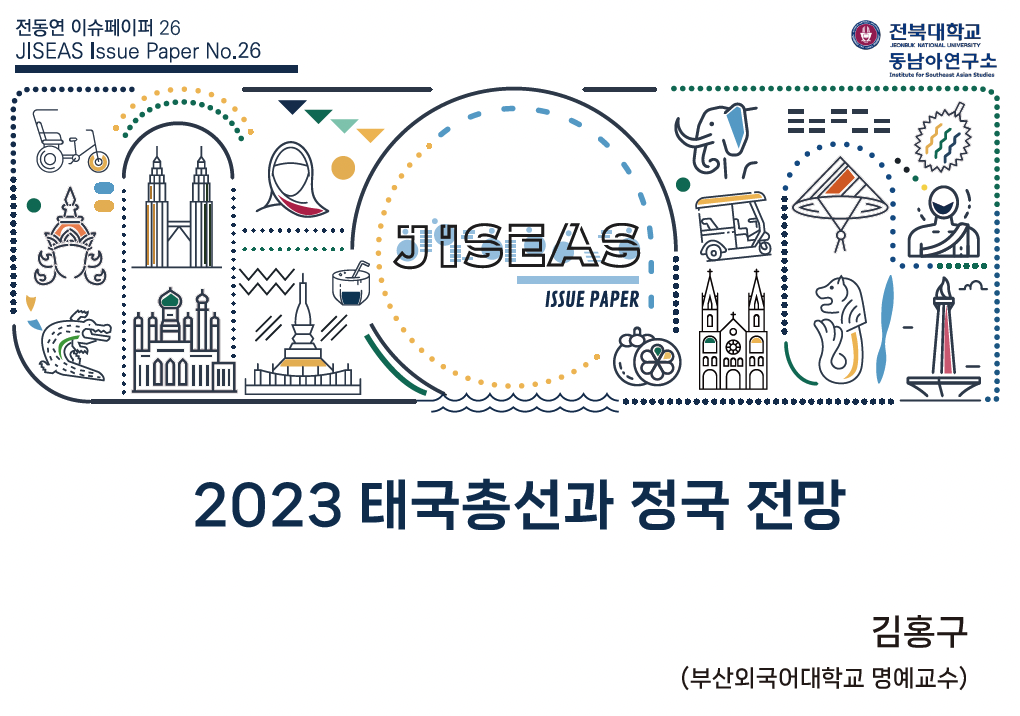- 작성일
- 2023.09.11
- 수정일
- 2023.09.11
- 작성자
- 동남아연구소
- 조회수
- 162
[No. 26] 2023 Thai General Election and Political Outlook

JISEAS Issue Paper No. 26
"2023 Thai General Election and Political Outlook"
by Hongkoo Kim
Abstract
On May 14, Thailand held a general election. As a result of the general election, the opposition Kau Klai Party(Move Forward Party) came first and Pheua Thai Party came second. By building an opposition coalition around the two parties, it secured 312 seats in the House of Representatives and nominated Pita Limjaroenrat of the Kau Klai Party as its candidate for the Prime Minister. However, in the first and second joint sessions of the Senate and House of Representatives, Pita was not elected the Prime Minister because he failed to secure a majority. Under the current method of electing the Prime Minister, the Prime Minister can only be elected with the support of a majority (376 votes) of both houses in a joint session of the Senate and the House of Representatives (250 seats in the Senate and 500 seats in the House of Representatives).
After two unsuccessful attempts to become the Prime Minister due to opposition from the Senate, which supported the old ruling parties, Kau Klai Party passed the baton to the second party in the opposition coalition, Pheu Thai Party. However, Pheu Thai Party broke with the previous opposition coalition, which excluded Kau Klai Party and joined forces with the pro-junta Palang Pracharat Party, Ruam Thai Sang Chart Party, Bhumjaithai Party. With the support of the Senate, Srettha Thavisin of Pheu Thai Party was elected the Prime Minister with 482 votes, well over the majority.
As a result, Pheu Thai Party allied with the military, a long-time political opponent, in its quest for power. This has drawn condemnation from hardliners within Pheu Thai Party and Kau Klai Party, as well as from civil society. The political situation is expected to lead to further political instability.
* Please find the attached file for JISEAS Issue Paper No. 26.
- 다음글
-
[No. 27] Southeast Asia in Taiwan: Observation Report of 2023 Asian Conference for Young Scholars of Southeast Asian Studies동남아연구소 2023-10-12 11:53:55.0
- 이전글
-
[No. 25] 2023 Cambodian General Election: an Election for Power Succession동남아연구소 2023-08-21 13:03:44.0